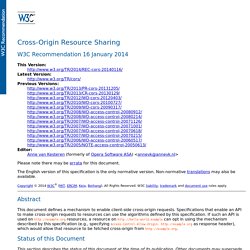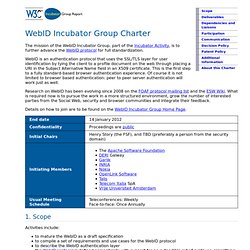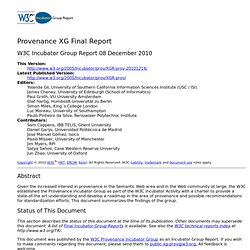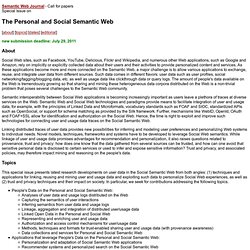

Cross-Origin Resource Sharing. Abstract This document defines a mechanism to enable client-side cross-origin requests.

Specifications that enable an API to make cross-origin requests to resources can use the algorithms defined by this specification. If such an API is used on resources, a resource on can opt in using the mechanism described by this specification (e.g., specifying Access-Control-Allow-Origin: as response header), which would allow that resource to be fetched cross-origin from Status of this Document This section describes the status of this document at the time of its publication.
This document has been reviewed by W3C Members, by software developers, and by other W3C groups and interested parties, and is endorsed by the Director as a W3C Recommendation. This W3C Recommendation of CORS was produced jointly by the Web Applications (WebApps) and Web Application Security (WebAppSec) Working Groups, and published by the WebAppSec Working Group. Table of Contents 1 Introduction This section is non-normative. WebID Incubator Group. The mission of the WebID Incubator Group, part of the Incubator Activity, is to further advance the WebID protocol for full standardization.

WebID is an authentication protocol that uses the SSL/TLS layer for user identification by tying the client to a profile document on the web through placing a URI in the Subject Alternative Name field in an X509 certificate. This is the first step to a fully standard-based browser authentication experience. Of course it is not limited to browser based authentication: peer to peer server authentication will work just as well.
Research on WebID has been evolving since 2008 on the FOAF protocol mailing list and the ESW Wiki. What is required now is to pursue the work in a more structured environment, grow the number of interested parties from the Social Web, security and browser communities and integrate their feedback. Scope Activities include: Success Criteria Out of Scope Making the protocol complex by attempting to solve all problems. Deliverables. Provenance XG Final Report. W3C Incubator Group Report 08 December 2010 This Version: Latest Published Version: Editors: Yolanda Gil, University of Southern California Information Sciences Institute (USC / ISI) James Cheney, University of Edinburgh (School of Informatics) Paul Groth, VU University Amsterdam Olaf Hartig, Humboldt-Universität zu Berlin Simon Miles, King´s College London Luc Moreau, University of Southampton Paulo Pinheiro da Silva, Rensselaer Polytechnic Institute Contributors: Sam Coppens, IBB TELIS, Ghent University Daniel Garijo, Universidad Politécnica de Madrid Jose Manuel Gomez, Isoco Paolo Missier, University of Manchester Jim Myers, RPI Satya Sahoo, Case Western Reserve University Jun Zhao, University of Oxford Copyright © 2010 W3C® (MIT, ERCIM, Keio), All Rights Reserved.

Personal and Social Semantic Web. Semantic Web Journal - Call for papers Special Issue on [about] [topics] [dates] [editorial] new submission deadline: July 29, 2011 About Social Web sites, such as Facebook, YouTube, Delicious, Flickr and Wikipedia, and numerous other Web applications, such as Google and Amazon, rely on implicitly or explicitly collected data about their users and their activities to provide personalized content and services.

As these applications become more and more connected on the Semantic Web, a major challenge is to allow various applications to exchange, reuse, and integrate user data from different sources. Semantic interoperability between Social Web applications is becoming increasingly important as users leave a plethora of traces at diverse services on the Web. Linking distributed traces of user data provides new possibilities for inferring and modeling user preferences and personalizing Web systems to individual needs. Topics. Semantic Web Trust and Security Resource Guide.